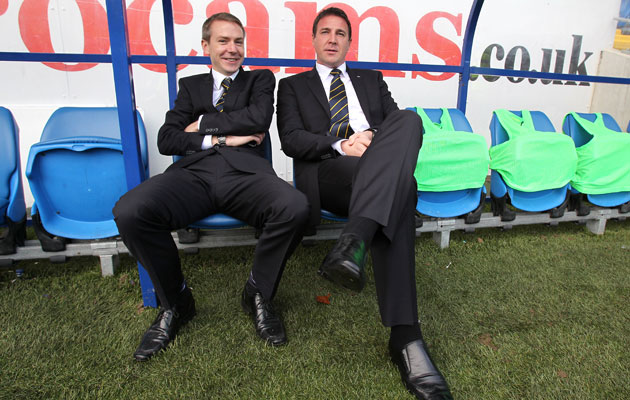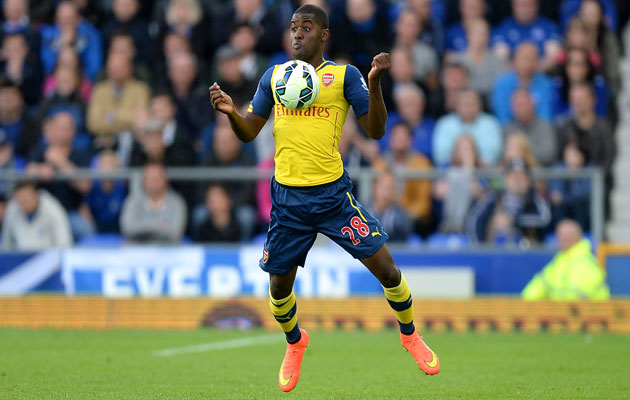The repugnant exchanges between Malky Mackay and his sidekick Iain Moody while both were at Cardiff had a deplorable sequel in the half-baked attempt by the League Managers Association to investigate the matter.
Jews, women, homosexuals, Orientals and blacks were all crudely and gratuitously abused. A scandal compounded when the LMA issued a lame brained statement which, while acknowledging the outrage of the various insults, adds the feeble palliative that “Malky felt under great pressure, when he was letting off steam to a friend during some friendly text message banter.” Some banter!
One might add that, somewhat in common with the old Roman adage in vino veritas, “in wine there is the truth,” you might say that truth will also tend to emerge under such alleged pressure.
Quite properly there have been calls for the resignation of the chief executive of the LMA, Richard Bevan, who clearly must take responsibility whether he devised his body’s daft communication or not: one which limply sat on the fence over the ghastly Mackay-Moody excesses. Only to be forced almost at once to make an abject apology.
But little real emphasis has been so far placed on what is surely a central rather than peripheral aspect of the horrid affair. That is to say, the grovelling abasement made by Mackay to the Cardiff owner Vincent Tan, withdrawing his initial demand for £7.5 million compensation, hardly a bagatelle, apologising without reservation for any offence he might have caused referring to a settlement which had been reached.
What kind of a settlement you may well ask; grovelling apart? Had he and perhaps Moody realised that their incriminating emails were going to be released? Not that Tan himself has ever seemed an endearing rather than arrogant figure. His decision on manifestly superstition grounds to change the blue colours Cardiff City had worn for so long to red because red was supposed to be a lucky colour was an insult to the club, its long tradition which included being the only team to take the FA Cup out of England in 1927 (against Arsenal and Welsh keeper Danny Lewis’ ghastly mistake) and its infuriated fans.
Meanwhile it looked when Crystal Palace lost so easily at home to West Ham United, and an exulting Sam Allardyce, that the Palace players’ morale had been temporarily affected by the recent managerial turmoils. The departing of Tony Pulis was a catastrophic loss, compounded by the sudden elimination of Mackay.
Talking of club colours, what on earth possessed Arsenal to embrace the multi-colours chromatic disaster of their new away strip? Evoking unhappy memories of the time, some years ago, when they wore as second strip an equally appalling design; a multiplicity of different coloured squares; yellow and red and black if I remember correctly, though it is tempting not to.
The present dire lapse of taste compounded by the fact that at Goodison Park when they played and drew their second League match of the season against Everton, there was no colour clash whatsoever. Unless some colour blind individual at The Emirates seriously believe that red and blue resemble one another.
This deplorable habit of wearing a special away kit no matter how unnecessary was also evident a week earlier when at Queens Park Rangers, who as we all know wear blue and white hoops, one saw Hull City, whose normal colours are of course yellow, turn out in black.
Is it all as so often just a question of money, some kind of perverse deal with the manufacturers of club’s shirts with payment involved? Surely a club of Arsenal’s stature with Arsenal’s income should be well above that kind of petty deal. I’m reminded that when I lived and worked in Italy in the 1950s, the rule was – I’ve no idea whether it still is – that whenever there was a colour clash it was the home team which had to change, the sensible idea being that the home crowd would be glad to watch the away team in their normal colours.
Felix Magath arrived late last season at Fulham with a formidable reputation both as an ex-player – scorer of the winning goal for Hamburg in a European Cup Final – and as a successful manager of a string of Bundesliga clubs.
He somewhat perilously announced that he had never yet managed a club which was relegated. Well, this soon happened though it could hardly be chiefly his fault.
What has emphatically been his fault is that in the “Championship.” Which Fulham were widely expected to win, he pursued a hara kiri policy, overloading his team with young, inexperienced players. Players who beyond doubt had shown their promise in junior football, not least in a gallant display against Chelsea in that Youth Cup Final last season.
But if Alan Hansen’s famous apothegm, you win nothing with kids, had famously been disproved by a young Manchester United team, there are surely limits to how young and inexperienced such “kids” can be. Fulham’s have been lambs to the slaughter.








